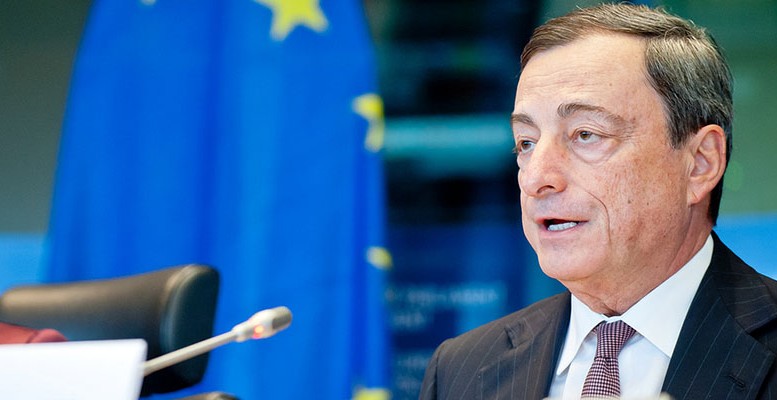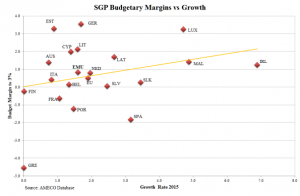Francesco Saraceno | Yesterday Mario Draghi has called once more for other policies to support the ECB titanic (and so far vain) effort to lift the eurozone economy out of its state of semi-permanent stagnation. Here is the exact quote from his introductory remarks at the European Parliament hearing:
In parallel, other policies should help to put the euro area economy on firmer grounds. It is becoming clearer and clearer that fiscal policies should support the economic recovery through public investment and lower taxation. In addition, the ongoing cyclical recovery should be supported by effective structural policies. In particular, actions to improve the business environment, including the provision of an adequate public infrastructure, are vital to increase productive investment, boost job creations and raise productivity. Compliance with the rules of the Stability and Growth Pact remains essential to maintain confidence in the fiscal framework.
In a sentence, less taxes, more public investment (in infrastructures), and respect of the 3% limit. I just have two very quick (related) comments:
- Boosting growth remaining within the limits of the stability pact simply cannot happen. I just downloaded from the Commission database the deficit figures and the growth rate for 2015. And I computed the margin (difference between deficit and the 3% SGP limit). Here is what it gives:
Not only the margin for a fiscal expansion is ridiculously low for the EMU as a whole (at 0.8% of GDP, assuming a multiplier of 1.5 this would give globally 1.2% of extra growth). But it is also unevenly distributed. The (mild) positive slope of the yellow trend line, tells us that the countries that have a wider margin are those which need it the less as, overall, they grew faster in 2015. Said otherwise, we should ask the same guys who are unable to show a modicum of decency and solidarity in managing a humanitarian emergency like the refugee crisis, to coordinate in a fiscal expansion for the common good of the eurozone. Good luck with that…
Mr Draghi is too smart not to know that the needed fiscal expansion would require breaching the limits of the pact. Unless we had a real golden rule, excluding public investment from deficit computation.
2. So, how can we have lower taxes, more investment, and low deficit? The answer seems one, and only one. Cutting current expenditure. And I think it is worth being frank here: Besides cutting some waste at the margin, the only way to reduce current public expenditure is to seriously downsize our welfare state. We may debate whether our social model is incompatible with the modern globalized economy (I don’t think it is). But pretending that we can have the investment boost that even Mr Draghi today think is necessary, leaving our welfare state untouched, is simply nonsense. You can’t have the cake and eat it.
Therefore, what we should be talking about is our social contract. Do we want to keep it or not? Are we ready to pay the price for it? Are we aware of what the alternative of low social protection would imply? Are our institutions ready for a world in which automatic stabilization would play a significantly lesser role? If after considering these (and other) questions, the EU citizen decided, democratically, to abandon the current EU social model, I would not object to it. I would disagree, but I would not object. The problem is that this change is being implemented, bit by bit, without a real debate. I am no fan of conspiracy theories. But when reading Draghi yesterday, I could not avoid thinking of an old piece by Jean-Paul Fitoussi, arguing that European policy makers were pursuing an hidden agenda (I have discussed it already). The crisis weakened resistance and is making it easier to gradually dismantle the EU social model. The result is growing disaffection, that really surprises nobody but those who do not want to see it. An Italian politician from an other era famously said that to think the worst of someone is a sin, but usually you are spot on…






